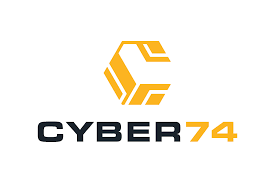The Power of CYRISMA
Optimize Cyber Risk Management with our multi-feature SaaS platform
CYRISMA allows you to Discover, Understand, Mitigate, and Manage cyber risk with efficiency and speed
1. Discover
Discover your own and customer organizations’ sensitive data, connected assets, system configuration errors, and vulnerabilities. Get enhanced visibility into your customers’ extended attack surfaces.
2. Understand
Get a deep understanding of network and endpoint vulnerabilities and their impact. Generate detailed reports to easily assess and demonstrate organizational cyber risk and how to reduce it.
3. Mitigate
Create comprehensive, easy-to-track mitigation plans based on risk assessment results. Establish accountability with start and end dates, the ability to assign tasks to team members, and progress tracking.
4. Manage
Manage risk with periodic assessments and mitigation plans, risk monetization, compliance tracking, and score cards to compare month-on-month progress. Make better informed, data-driven decisions.
Key Features
Partners
Join the companies partnering with CYRISMA







End Clients
Join CYRISMA’s thriving end client community
Making Cybersecurity Accessible, Simple and Affordable
With CYRISMA’s all-in-one, cloud-delivered risk management platform, you can help clients streamline their cyber risk assessment and mitigation processes and get quick, measurable results, while eliminating high licensing costs and burdensome technologies.
We are the simple choice for effective cybersecurity.
Latest News
Read The latest Articles
We’re thrilled to announce the release of CYRISMA’s much-awaited Windows Patch Management feature! You can now push the latest Microsoft security updates (KBs) from within the platform, and automatically rescan the system to confirm vulnerabilities have been addressed.
We’re delighted to welcome our new CEO, Mark Balovnev, to CYRISMA! Mark has an excellent track record in scaling high-growth SaaS companies, having scaled through two successful acquisitions during his career.
CYRISMA’s GRC Module now includes NIST SP 800-53! The comprehensive security control framework provides a catalog of security and privacy controls for federal information systems and organizations. It’s mandatory for federal agencies and systems, but is also widely used voluntarily by private sector organizations, especially those working with government data or contracts.



























